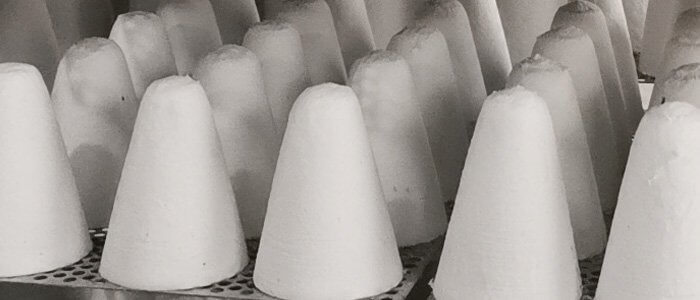Casting is a complex and intricate process that lies at the heart of numerous industries, ranging from automotive and aerospace to manufacturing and construction. As technology advances, materials used in casting are also evolving to meet the increasing demands for efficiency, durability, and cost-effectiveness. One such revolutionary group of materials making waves in the casting industry is ceramic fiber products.
Understanding Ceramic Fiber Products:
Ceramic fiber products are lightweight, high-temperature-resistant materials derived from a combination of alumina, silica, and other trace elements. These fibers are known for their exceptional thermal insulation properties, making them ideal for applications in industries where high temperatures are commonplace, such as casting.
Uses in Casting:
Insulation in Furnaces:
Ceramic fiber products find extensive use in lining the furnaces used for metal casting. The high-temperature resistance of these fibers helps create a protective barrier between the molten metal and the furnace walls, preventing heat loss and ensuring efficient energy utilization. This insulation capability is crucial for maintaining a stable and controlled casting environment.

Mold Making:
Ceramic fiber blankets, boards, and textiles are employed in creating molds for metal casting. Their flexibility and ability to withstand high temperatures make them excellent choices for shaping intricate molds. The fibers can be easily manipulated to form complex shapes, ensuring precision in the casting process.
Crucible Linings:
Crucibles, containers used to hold and melt metals, benefit from ceramic fiber linings. The fibers’ resistance to thermal shock and high temperatures ensures the crucible remains intact and stable during the intense heating and cooling cycles involved in metal casting.
Advantages of Ceramic Fiber Products in Casting:
High-Temperature Resistance:
One of the primary advantages of ceramic fiber products is their exceptional resistance to high temperatures. In casting applications, where extreme heat is a constant, these materials act as reliable insulators, preventing heat loss and maintaining optimal casting conditions.
Low Thermal Conductivity:
Ceramic fiber products possess low thermal conductivity, meaning they do not readily transfer heat. This property is advantageous in casting processes, as it helps maintain a consistent temperature profile within furnaces and molds, ensuring uniform and high-quality castings.
Lightweight and Durable:
Ceramic fiber products are lightweight, making them easy to handle and install. Despite their lightness, they are remarkably durable, providing long-lasting insulation and structural support in casting applications.
Chemical Stability:
The chemical stability of ceramic fibers makes them resistant to corrosion and chemical reactions. This property is crucial in casting processes involving corrosive molten metals, ensuring the longevity and reliability of the materials.
Flexibility and Easy Installation:
The flexibility of ceramic fibers allows for easy installation in various casting applications. Whether lining a furnace, creating a mold, or reinforcing a crucible, these products can be adapted to different shapes and sizes, enhancing the versatility of their use.
Conclusion:
Ceramic fiber products have emerged as indispensable materials in the field of casting, revolutionizing the way industries approach high-temperature processes. Their remarkable thermal insulation properties, coupled with durability and versatility, make them key players in enhancing the efficiency and quality of casting operations. As technology continues to advance, it is likely that ceramic fiber products will play an even more significant role in shaping the future of the casting industry.

